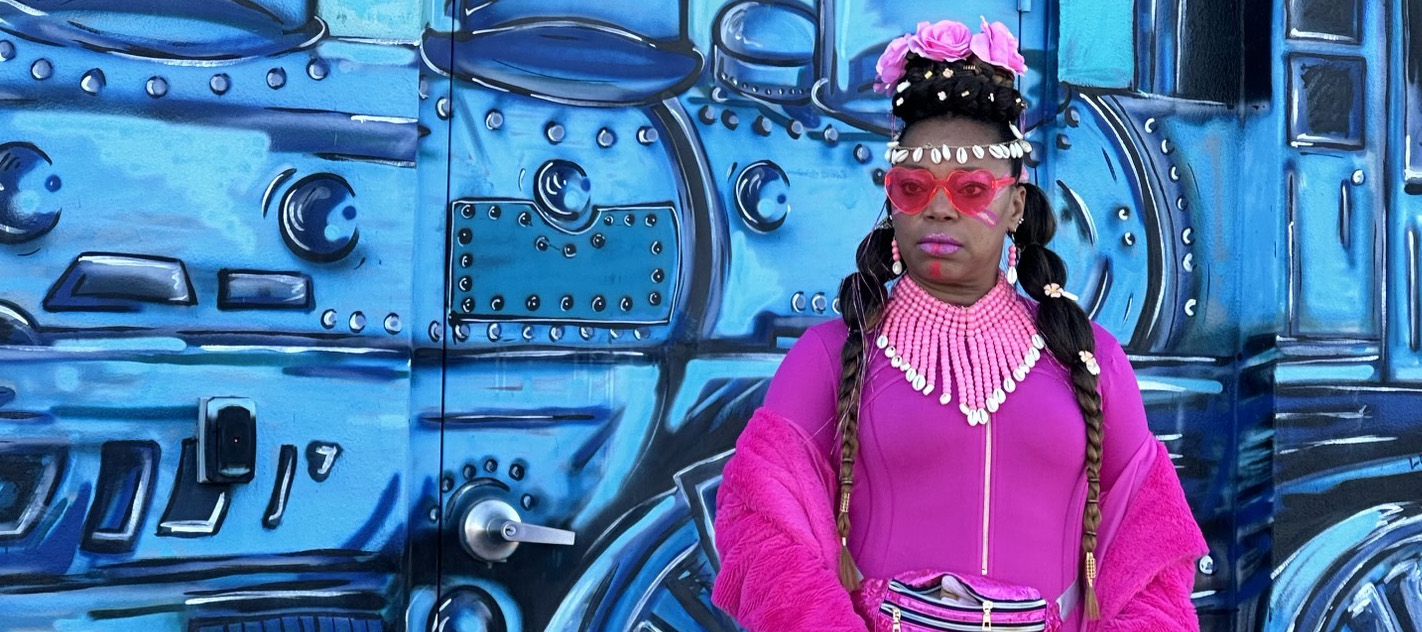Why I Play Too Much and So Should You: Masking as Cultural Strategy

by Tia Smith, The Opportunity Agenda
I love to play. When I was a child, playing was how I explored the world and how the world introduced herself to me. My posse of siblings and cousins and I played unapologetically, adorning ourselves with colorful fabric and faux gold rings, always critiquing the imposed boundaries set forth by our parents who wanted only to ensure our safety.
But sometime between high school and university, I settled into the seriousness of adulting and did not make much time to play. I became an educator and researcher, using knowledge as a tool to advocate for a more just and humane world. Although this is serious work, I soon came to understand that, for me to sustain, my work does not have to be void of joy. Play can be a formidable space for protest that intersects joy and purpose, intent and innovation, and collective creativity. Play, as a cultural strategy, infuses joy in our work and allows us to critique the world as we create and imagine a world in which we want to live.
A form of play that I enjoy is ‘playing mas’ or masquerading. Masquerade refers to the act of wearing masks and costumes to disguise one’s identity and participate in performances that have symbolic meanings. In Africa, masquerade is an essential part of indigenous religious and social practices and represents the connection and continuum between the spirit world or our ancestors and the living. It can serve multiple purposes for diverse groups, where performers use humor, satire, and parody to comment on social issues and challenge authority.
In Europe, masquerade balls were elaborate parties for the elite during Carnival, the 40-day period before Lenten season, the Catholic period of fasting. During the colonial period, when Europeans colonized Africa and the Americas, the enslaved Africans imbued their own meaning to the masquerade and used it as a strategy for social and political commentary by making mockery of their enslavers. Carnival is celebrated worldwide in more than 50 countries and places with Roman Catholic influence, such as Brazil, Trinidad & Tobago, and New Orleans, Louisiana. Playing mas continues to be a thriving part of Carnival celebrations.
This year, I celebrated Carnival in New Orleans and played mas as a Woman of Wakanda in the science fiction-themed Intergalactic Krew of Chewbacchus Mardi Gras parade. Chewbacchus is a Mardi Gras parade of revelers who are gamers, cosplayers, trekkies and super nerds. Over 150 subkrewes displayed reverence to science fiction and fantasy, often using satire and political critique.
Women of Wakanda, the only all black women group or “krewe” in the parade, was co-founded by sisters Wankeeta and Jaleesa Jackson who were inspired by the Black Panther film. Wankeeta explains that it was not just the film that moved her and her sister, it was also “the droves of Black people worldwide that dressed in their Wakanda best to see the movie and to revel in their image of a world untouched by European colonialism and imperialism.” They invited their friends to join in and the community of Black women grew by word of mouth. Some of the participants were veteran mas players who guided the more novice mas players. The group even formed their own Vibranium Council where members vote to select themes for the parade which are usually a mashup of contemporary pop culture, such as Beyoncé’s Renaissance tour and the Barbie movie.
There was a collective understanding of the significance of using public art to imagine our future and harken back to our past. Our costumes allowed us to transform as a way of acknowledging ancestors whilst signaling towards afro futures. The costumes represented personal narratives. They embodied stories that celebrated how we imagined ourselves to be – free from oppression and showing up in the fullness of our humanity.
The Women of Wakanda danced in the streets of downtown New Orleans filled with energy and joy. We were present and in the moment. We gave reverence to our ancestors and brought them along with us into the future. We chanted “Wakanda Forever!!” and that was all we needed to say.

Maxine Williams speaks with Louis Mc Williams, Artistic Director of the Malick Folk Performing Company and Lecturer at the Center for Creative and Festival Arts, on the tradition of Carnival mas.



